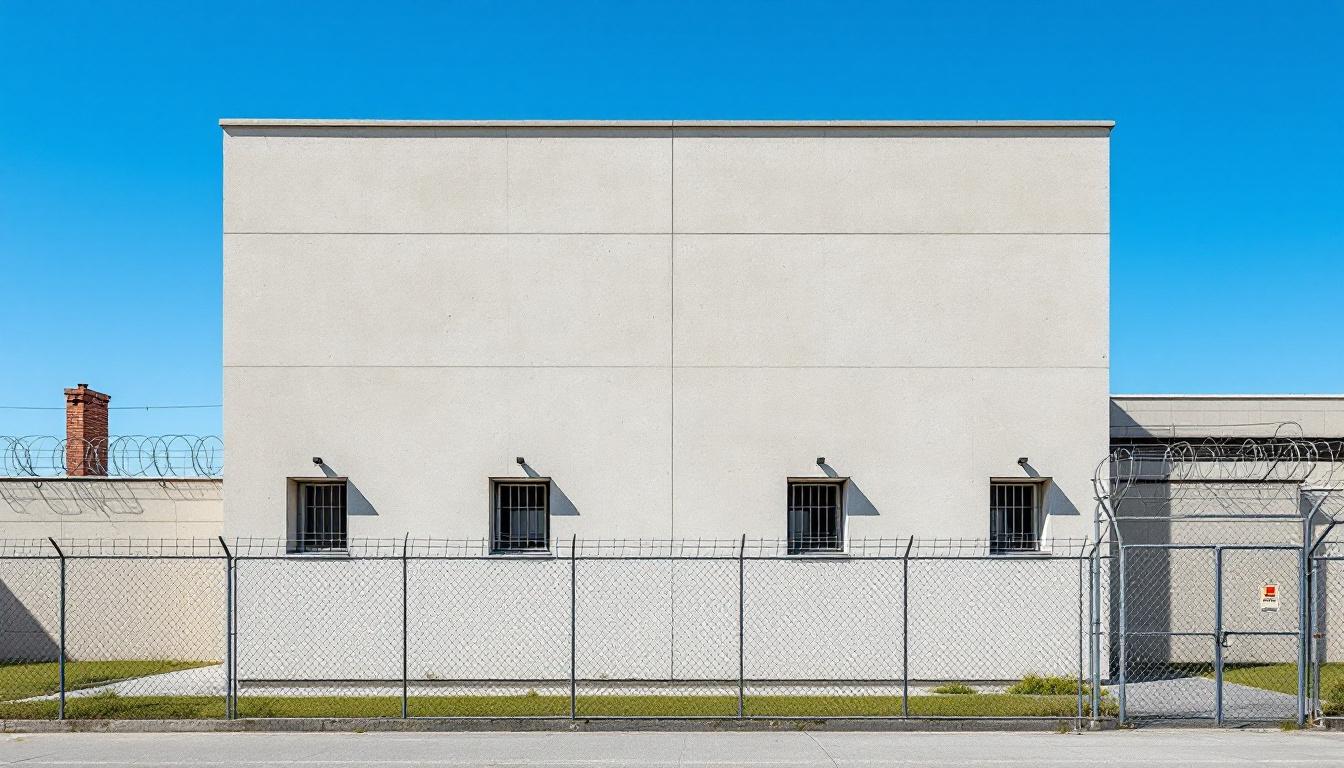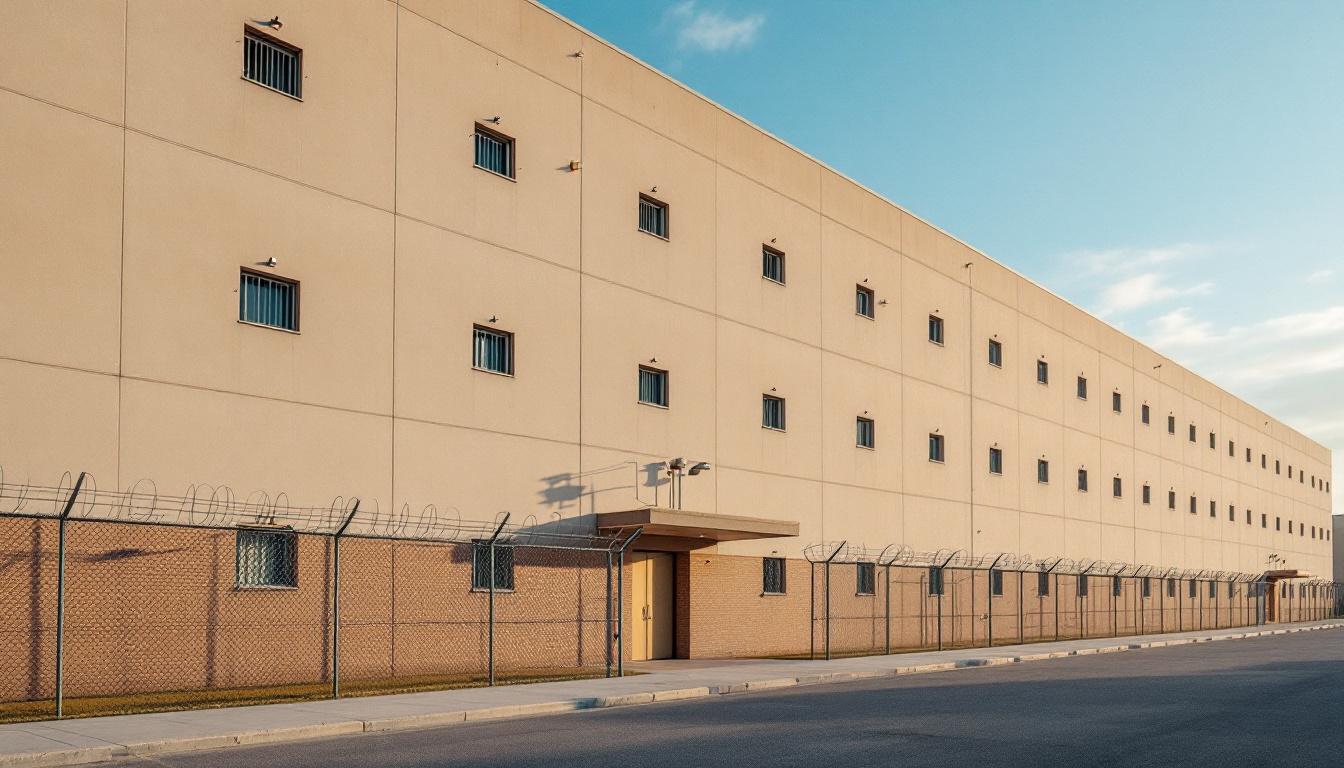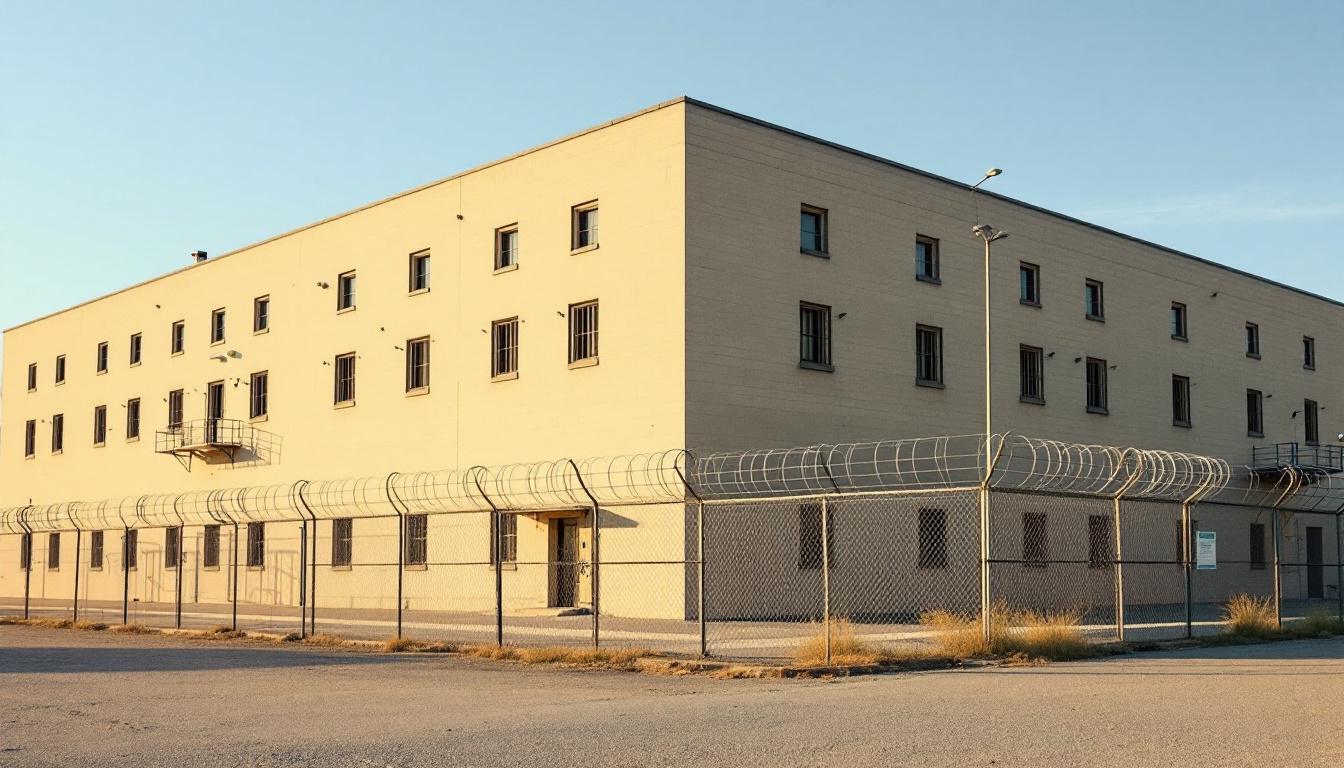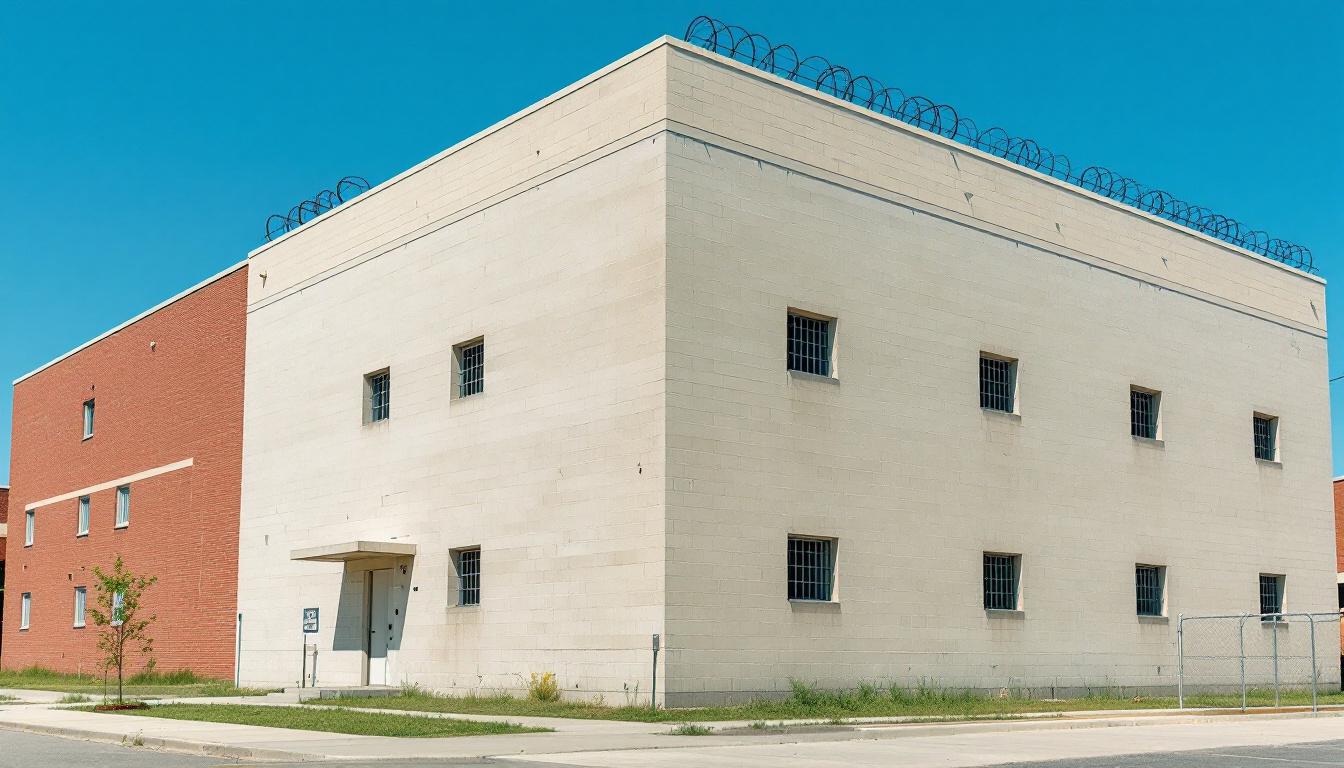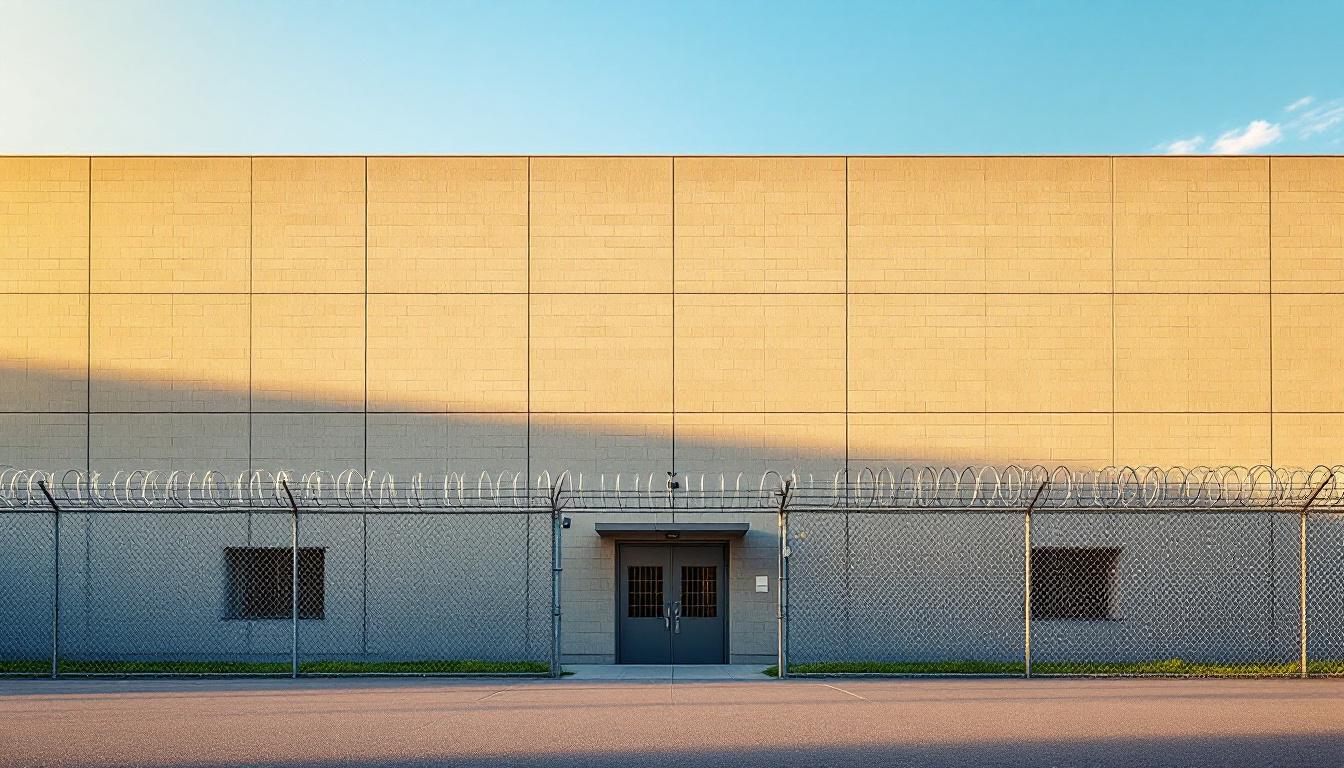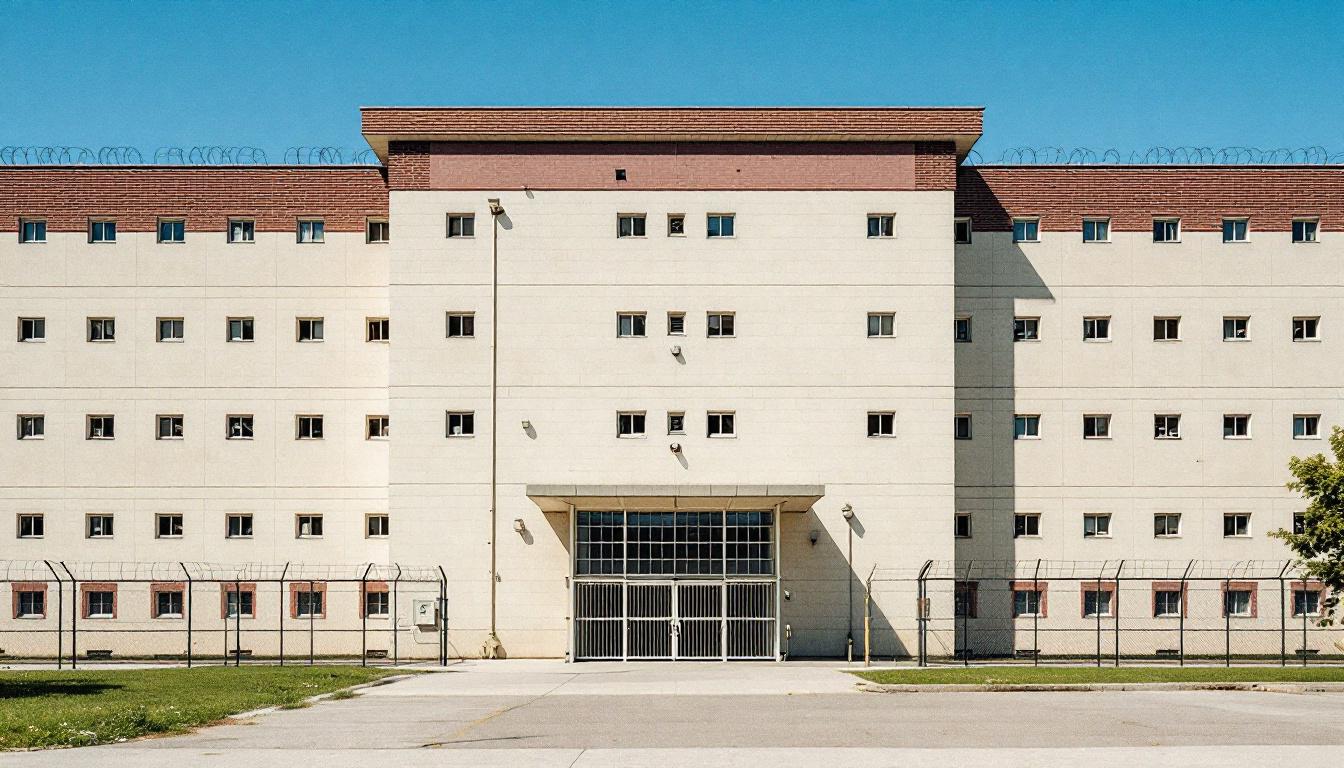
Quick Navigation
How to contact an inmate at DuPage County Jail
This comprehensive guide will walk you through how to connect with an inmate at DuPage County Jail. Follow the steps below to find an inmate and send letters and photos:
- Search for the inmate using our search tool below
- Create your account or log in to Penmate
- Write your message (up to 6,000 characters)
- Send instantly - inmates receive printed copies daily
Find an Inmate
Search for an inmate to start communicating today
Tip: You can search by first name, last name, or inmate ID number
To contact a person at DuPage County Jail start by searching for the person on the official facility website. Perform a search by following these steps:
- Step 1: Enter their first name and last name into the search form and click "Search"
- Step 2: Locate their inmate record
- Step 3: Write down their Inmate ID and any housing information provided
Important! Be sure to enter the person's full name. Nicknames should not be used.
How to Send Messages to Inmates

You can use your phone or computer to send emails, letters, and photos to an inmate. Messages are sent electronically to inmate tablets or kiosks at the facility. If you would like to send a message, start by searching for an inmate at DuPage County Jail.
Sending Photos and Postcards

A great way to send love and support to a loved one at DuPage County Jail is to send photos and postcards. It only takes a few minutes to send photos from your phone and it makes a huge difference. You can also mail postcards with words of support and inspiration, or design your own postcard for special moments like birthdays and holidays.
Important! Be sure not to send any explicit photos or they may not be approved by the facility. You can also use a photo printing app like Penmate to make sure your photos are printed at the correct size (4x6 or 3x5) and are mailed according to the rules and regulations of DuPage County Jail.
Frequently asked questions about DuPage County Jail
-
How long does it take to deliver a message?
If you're sending an email message your letter is usually delivered within 24-48 hours. For messages sent via mail you should expect delivery within 3-7 days. All messages will need be approved by DuPage County Jail.
-
How much does it cost to send a message to DuPage County Jail?
You can send a message free using your phone or mail a message via USPS for the price of a $0.60 stamp and envelope. You can also purchase credits or e-stamps from services starting at $1.99.
-
What services can I use to contact an inmate at DuPage County Jail?
Penmate
You can use Penmate to send letters and photos to an inmate from your phone. It's an easy way to stay in touch during your loved one's incarceration. Use the inmate locator to find an inmate's location and contact information, then you can send messages within a few minutes.
Securus messaging
Securus may be another option for communicating with an inmate at DuPage County Jail. You can create a friends and family account and purchase credits to send messages. All messages will be reviewed and must be approved by the facility.
JPay
Some county jails and state prisons may support sending messages with JPay. You must register an account with the system, find your loved one, and purchase stamps to send messages. For some locations you can also attach photos.
Smart Jail Mail
You may also check if Smart Jail Mail is available at DuPage County Jail. Smart Jail Mail is operated by Smart Communications and has contracted with some state and county jails. After purchasing credits, your messages and photos are sent to the facility, printed out, and then handed out to your loved one.
-
What is the mailing address of DuPage County Jail?
Mailing address:
DuPage County Jail
501 N County Farm Rd
Wheaton, IL 60187
Phone: (630) 407-2255Business hours:
- Monday: Open 24 hours
- Tuesday: Open 24 hours
- Wednesday: Open 24 hours
- Thursday: Open 24 hours
- Friday: Open 24 hours
- Saturday: Open 24 hours
- Sunday: Open 24 hours
-
What are the visiting hours at DuPage County Jail?
Visiting hours at DuPage County Jail vary by housing unit and security level. Generally, visits are scheduled on weekends and holidays, with some facilities offering weekday visits. Contact the facility directly at (630) 407-2255 or check their website for the current visiting schedule. Visits typically last 30-60 minutes and must be scheduled in advance.
-
What items are prohibited when sending mail to DuPage County Jail?
Prohibited items typically include: cash, personal checks, stamps, stickers, glitter, glue, tape, staples, paperclips, polaroid photos, musical or blank greeting cards, hardcover books, magazines with staples, and any items containing metal or electronics. Only send letters on plain white paper with blue or black ink. Photos must be printed on regular photo paper (no Polaroids). Always check with DuPage County Jail for their specific mail policies.
-
How do I send money to an inmate at DuPage County Jail?
You can send money to an inmate at DuPage County Jail through several methods: 1) Online using JPay, Access Corrections, or the facility's approved vendor, 2) Money orders mailed directly to the facility with the inmate's name and ID number, 3) Kiosks located in the facility lobby, or 4) Over the phone using a credit or debit card. Fees vary by method, typically ranging from $2.95 to $11.95 per transaction.
-
Can I schedule a video visit with an inmate at DuPage County Jail?
Many facilities now offer video visitation as an alternative to in-person visits. At DuPage County Jail, video visits may be available through services like Penmate, Securus Video Connect, GTL, or ICSolutions. Video visits typically cost $10-20 for 20-30 minutes and must be scheduled in advance. You'll need a computer or smartphone with a camera and reliable internet connection. Contact the facility for their specific video visitation policies and approved vendors.
-
What identification do I need to visit an inmate at DuPage County Jail?
All visitors must present valid government-issued photo identification such as a driver's license, state ID, passport, or military ID. Minors must be accompanied by a parent or legal guardian who can provide the minor's birth certificate. Some facilities require visitors to be on the inmate's approved visitation list, which may require a background check. Contact DuPage County Jail for specific ID requirements and visitor approval procedures.
-
How can I find out an inmate's release date?
To find an inmate's release date at DuPage County Jail, you can: 1) Use the online inmate search tool if available, 2) Call the facility's records department, 3) Contact the inmate's case manager or counselor, or 4) Have the inmate provide this information during a call or visit. For privacy reasons, some facilities only release this information to immediate family members.
Facility Overview
Official Website

About DuPage County Jail
Serving the criminal justice needs of DuPage County’s residents, this IL correctional facility operates as a vital component within Illinois’s broader detention network, maintaining secure custody while individuals await court proceedings or serve shorter sentences. Located in Wheaton, the county seat positioned approximately 25 miles west of Chicago, the facility functions within the densely populated collar county region where suburban communities intersect with urban justice requirements.
The Dupage County Jail, IL typically emphasizes a balanced approach between maintaining institutional security and providing essential services for those incarcerated. Daily operations generally focus on classification procedures that help determine appropriate housing assignments based on individual risk assessments and legal status. The facility may offer various programming opportunities that often include educational components, substance abuse counseling, and work assignments designed to maintain structure during incarceration periods. Medical services are typically available to address both routine healthcare needs and emergency situations, while mental health support may be provided through qualified professionals who understand the comprehensive challenges faced by individuals in custody.
Within Illinois’s correctional framework, county facilities like this one serve as crucial intake points where newly arrested individuals undergo initial processing before potential transfer to state institutions for longer sentences. The facility’s role extends beyond simple detention, as staff members often coordinate with local courts, probation departments, and community organizations to facilitate legal proceedings and prepare individuals for eventual reintegration. Visitation programs typically allow family members to maintain contact through scheduled sessions, while commissary services may provide access to personal items and communication options that help preserve important relationships during periods of separation.
Programs & Services
Those incarcerated at DuPage County Jail in Illinois find themselves with access to meaningful opportunities designed to foster personal growth and prepare them for successful reintegration into their communities. The facility’s approach centers on providing structured pathways for skill development, education, and therapeutic support within a secure environment. These offerings recognize that time spent in custody can become a foundation for positive change when individuals have access to resources that address both immediate needs and long-term goals.
Educational services typically form a cornerstone of the facility’s development offerings, often including basic literacy programs, GED preparation, and civic education components that help participants understand their roles as community members. Vocational programs may furnish hands-on training in various trades and practical skills, with some offerings potentially including specialized certifications such as forklift operation. Moreover, job placement assistance services often work to connect those preparing for release with potential employment opportunities, helping bridge the gap between incarceration and community reentry.
The facility’s support structure typically extends to comprehensive mental health treatment services that address underlying issues contributing to criminal behavior. Victim awareness programs may offer participants opportunities to understand the broader impact of their actions while developing empathy and accountability. These therapeutic offerings often work in conjunction with other services to create a holistic approach to rehabilitation, emphasizing personal responsibility and community safety as interconnected goals within the facility’s secure environment.
Daily Life & Visitation

Family connections and peer relationships form the backbone of community life for those incarcerated at DuPage County Jail. The facility now operates on structured schedules that regularly incorporate opportunities for social interaction and maintaining ties with loved ones. Those incarcerated typically begin their day with morning counts and meal service, followed by programming blocks that may include educational sessions, counseling groups, or work assignments that furnish both structure and social engagement.
Housing units generally accommodate multiple individuals in dormitory-style settings or smaller cells, creating natural communities where residents often develop supportive relationships. Meals are typically served in common dining areas, providing regular opportunities for social interaction and community building. Moreover, recreation periods usually include access to dayrooms, television viewing areas, and exercise facilities where those incarcerated can maintain physical fitness and engage with peers in structured activities.
The facility typically offers various work assignments within the jail, such as kitchen duties, maintenance tasks, or cleaning responsibilities, which provide both routine and opportunities to contribute to the facility community. Communication with family members may include scheduled phone calls, video visitation sessions, and mail correspondence, helping those incarcerated maintain crucial outside connections. Whereas some programming focuses on individual development, group activities and shared living spaces ensure that community bonds remain central to the daily experience, supporting both personal well-being and successful reintegration preparation.
Ready to Connect?
Start communicating with your loved one today
Search for an Inmate

